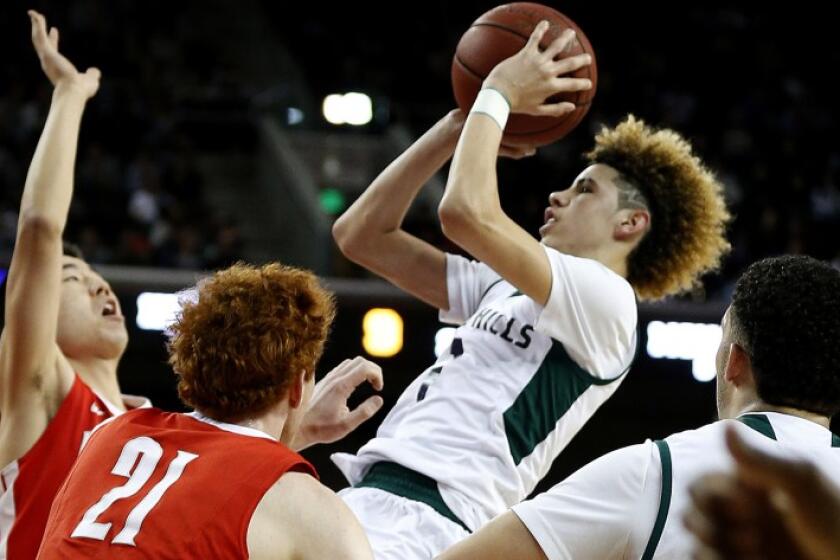A new Thanksgiving Day tradition: football’s concussion circle
The game of football has evolved over the years with different formations. We’ve had the single-wing, the split-T, the wildcat.
Now, we have a new one. The concussion circle.
The only player involved in this formation is the poor guy on the ground in the middle. The others are medical personnel, who are asking questions, checking eyeballs and taking the helmet away.
There were three NFL games on Thanksgiving Day. We expected the usual amount of violent head-smacking. We weren’t disappointed.
The Packers’ Ryan Taylor catches a pass and gets sandwiched. There is a jolting helmet hit from the Lions’ DeAndre Levy. To Levy’s credit, he seems decently concerned. Often in these situations, the hitter does a celebration dance while the hittee is being asked to remember his phone number.
Taylor, looking as if he has just received a George Foreman punch combination, is escorted off by the concussion circle. He returns later. No word on his phone number recollection.
In the Raiders-Cowboys game, Oakland’s Rashad Jennings is having a huge game until he is kneed in the head. For a while, he doesn’t even twitch. Eventually, the concussion circle points Jennings in the direction of the sideline and escorts him on a walk he’ll never remember.
This one is officially diagnosed: concussion. See you playing next week. (Let’s hope not.)
Then there is Le’Veon Bell’s short dash to the goal line for the Steelers in the closing moments of their loss to the Ravens. As he flies toward the end zone, he is hammered, helmet to helmet, by Jimmy Smith. Bell’s now-helmet-less head slams to the turf in the sub-freezing Ravens stadium. He stays down. So does Smith.
It is ruled that, even though Bell carried the ball into the end zone, it is not a touchdown because, as replays showed, his helmet came off before the ball crossed the goal line. And the NFL rule now — one of those nice window-dressing changes meant to assure the public that everything possible is being done for the safety of the players — says the ball is dead the second the helmet comes off.
The Steelers eventually score the touchdown, but lose on a failed two-point conversion. Somebody will have to show Bell the film. When the concussion circle escorts him off, he appears uncertain what planet he is on, much less what team.
Head injuries in football, on all levels, are not new. But with all the attention they are getting these days, thanks in part to increased media coverage of the arrogance of the longtime NFL coverup, they are now foremost in the public’s frontal lobe.
A short time after a dazed Taylor is escorted off, network commentator Troy Aikman, the former UCLA star who was an even bigger star quarterback with the Cowboys, notes that Taylor’s Green Bay teammate, Eddie Lacy, “is not as effective since he had that concussion.”
The YouTube replay shows the Redskins’ Brandon Meriweather making the hit on Lacy. Helmet to helmet. Lacy sits on the turf, wondering what turf is.
That was Sept. 15. This is Nov. 28.
Aikman sympathizes, saying it can take a long time to recover from a concussion. Few would know better than Aikman, who was driven out of the game by them, in an era well before the concussion circle formation.
In “League of Denial,” the recent PBS “Frontline” show about concussions in football, Aikman’s former agent, Leigh Steinberg, tells of visiting Aikman after one of the concussion games and having Aikman ask him the same question, over and over again. Steinberg’s description of the scene was graphic and frightening.
We can only wonder what parents of Pop Warner sons are thinking as they watch and wonder about all this.
It is clear what the parents of Tyler Lewellen of Riverside Arlington High think. Their son died a few days after losing consciousness following a tackle in a practice game Aug. 22.
A nicely done recent story by Billy Witz in the New York Times captures the fallout and aftershock not only to his family but to the entire Arlington team. It is a portrait of teenagers trying to make sense out of, and carry on nobly, with a sport that adults around them have offered up as character-building and manhood-forming.
The emotion of the parents of Jordan Walker, Corona Santiago High player, is clear. Their every thought is sadness.
They were to be in attendance Friday night at a playoff game between Upland and Centennial. There, both teams were to take a pregame knee together in a moment of silence and prayer that Walker would recover from a paralyzing spinal injury suffered last week in a playoff game against Upland.
When that happened, the concussion circle became a stretcher-carrying circle, even a prayer circle.
Walker’s injury wasn’t a concussion, but it was football trauma, often potentially deadly. We are seeing all too much of that on all levels of the game.
Walker is 16. Lewellen was too.
Football is not going away. It would be heresy to even advocate that. It is a sport with tenacles deep into our society’s economy. It is entrenched as a way of life in our schools and communities, where it is a source of identity and self-esteem.
It is our version of a civilized war game. The problem is, we keep moving the boundaries of what is civilized.
More to Read
Go beyond the scoreboard
Get the latest on L.A.'s teams in the daily Sports Report newsletter.
You may occasionally receive promotional content from the Los Angeles Times.











